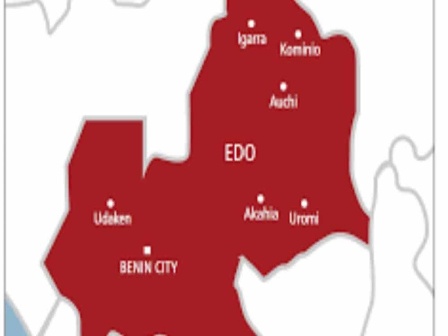THE Edo State Government in partnership with IDH Netherlands, has commenced phase II of the National Initiative for Sustainable and Climate Smart Oil Palm Smallholders (NI-SCOPS II).
This initiative aims to empower and develop oil palm small holder farmers in the state, building upon the successes achieved in phase I, which focused on the Okomu landscape.
The Managing Director of Edo State Investment Promotion Office (ESIPO)-Ease of Doing Business Secretariat, Mr. Kelvin Uwaibi emphasized the state government’s unwavering commitment to supporting the program, recognizing its potential to drive economic growth and development. He stated that the government is dedicated to creating a conducive environment for businesses to thrive.
“The state government is fully committed to supporting this initiative,” Uwaibi noted, “recognizing its potential to drive economic growth and development.
This collaboration with IDH is essential for advancing the state’s Green Development Plan, as captured in the recently launched 30-year master plan.”
The workshop, held in Benin City, brought together key stakeholders from the private sector and government agencies to discuss the priorities for the upcoming phase II of NI-SCOPS.
In his remarks, Comrade Kadiri Bashiru, Retired Permanent Secretary from the Edo State Ministry of Agriculture, highlighted the significant achievements of NI-SCOPS I, including increased productivity, improved relationships between large-scale players and smallholder farmers, and the successful implementation of sustainable oil palm farming practices.
Mr. Abraham Ugwu, Senior Program Manager at IDH, representing the Country Director, noted that phase II of the initiative will benefit 111,000 smallholder farmers globally, with 10,500 beneficiaries Nigeria. He reaffirmed IDH’s continued commitment to supporting the initiative.
Professor Ngozi Unuigbe, Facilitator of the Edo NI-SCOPS Partners Forum, emphasized the need to address key challenges identified in phase I, such as stakeholder coordination, strengthening the monitoring and evaluation framework, and ensuring greater involvement of smallholder farmers in decision-making processes.
The NI-SCOPS II is expected to focus on the Sakpomba Oil Palm landscape, building upon the successes achieved in the Okomu landscape during phase I. By addressing the challenges and capitalizing on the opportunities presented by the initiative, Edo State aims to position itself as a leader in sustainable and climate-smart oil palm production.


